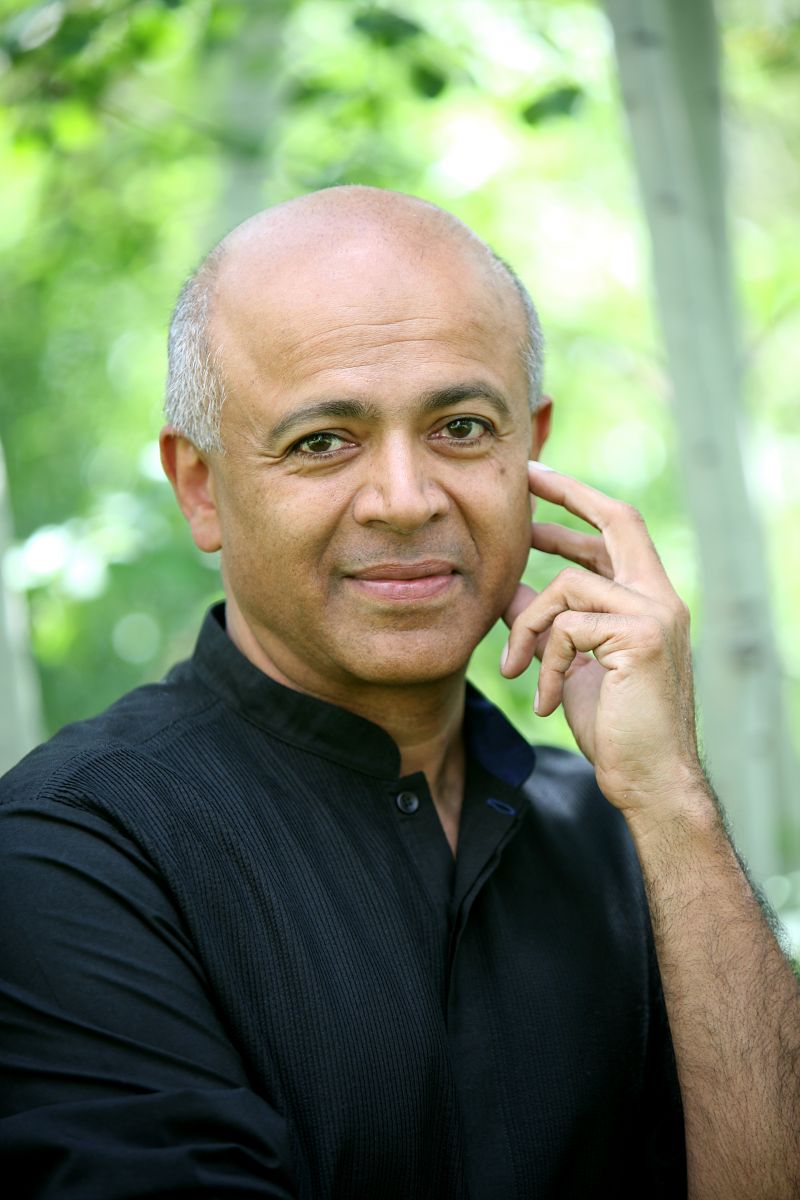Speaker Biographies
Keynote Speakers:
Abraham Verghese, M.D.
Abraham Verghese, M.D., renowned physician, bestselling author, and Professor for the Theory and Practice of Medicine at theStanford University School of Medicine, has earned accolades in and out of the medical community for his advocacy on behalf of patients. He is widely regarded as having influenced the way modern medical students think about what it means to be a doctor and  to treat people. Dr. Verghese has lectured widely on the importance of the doctor-patient relationship, on the samaritan function of physicians, and on where meaning resides in a medical life.
to treat people. Dr. Verghese has lectured widely on the importance of the doctor-patient relationship, on the samaritan function of physicians, and on where meaning resides in a medical life.
Much of Dr. Verghese’s life’s work is brought to bear on his debut novel Cutting for Stone, which has been celebrated by critics around the country and has spent over 100 weeks on The New York Times bestseller list. Entertainment Weekly praised the novel as “a lovely ode to the medical profession…. The doctor in [Verghese] sees the luminous beauty of the physician’s calling; the artist recognizes that there remain wounds no surgeon can mend.” Dr. Verghese has also written two nonfiction books. My Own Country, published in 1994, is a memoir about his time treating AIDS patients in rural Tennessee. It was a finalist for the National Book Critics Circle Award and was made into a movie directed by Mira Nair (The Namesake). His second book, The Tennis Partner, about his close friendship with a drug-addicted physician, was published in 1998, was a New York Times Notable Book and a national bestseller.
All of Abraham Verghese’s works, fiction and nonfiction, reflect his view of medicine as a passionate pursuit and a priestly calling. Dr. Verghese was raised in Ethiopia, attended medical school in India, and came to the United States to practice. He soon became concerned about doctors losing touch with the roots of medicine and with their patients. “The patient in America is becoming invisible,” observes Verghese. “It is as if the patient in the bed is merely an icon for the real patient, who exists in the computer.” He has worked tirelessly to reverse the trend in his own practice and by speaking publicly. He has appeared on CBS’s 60 Minutes and on National Public Radio to discuss these issues. He has published extensively in the medical literature, and his writing has appeared in The New Yorker, Sports Illustrated, The Atlantic, Esquire, Granta, The New York Times Magazine, The Wall Street Journal, and elsewhere.
A moving speaker, he is also acclaimed as a dedicated and inspiring teacher of medicine at the bedside and is a sought-after clinician and diagnostician.
Sara Rosenbaum, J.D.
Sara Rosenbaum, J.D., is the Harold and Jane Hirsh Professor and founding Chair of the Department of Health Policy, George Washington University School of Public Health and Health Services, a unique center of learning, scholarship, and service focusing on all aspects of health policy. Professor Rosenbaum has devoted her career to issues of health law and policy affecting low .jpg) income, minority, and medically underserved populations. Between 1993 and 1994, Professor Rosenbaum worked for President Clinton, directing the legislative drafting of the Health Security Act and developing the Vaccines for Children program. Professor Rosenbaum also served on the Presidential Transition Team for President-Elect Obama.
income, minority, and medically underserved populations. Between 1993 and 1994, Professor Rosenbaum worked for President Clinton, directing the legislative drafting of the Health Security Act and developing the Vaccines for Children program. Professor Rosenbaum also served on the Presidential Transition Team for President-Elect Obama.
A graduate of Wesleyan University and Boston University School of Law, Professor Rosenbaum has authored more than 250 articles and studies focusing on all phases of health law and health care for medically underserved populations. She is lead author of Law and the American Health Care System (Foundation Press, NY), a widely used health law textbook.
A holder of numerous awards for her scholarship and service, Professor Rosenbaum is the recipient of the Richard and Barbara Hansen National Health Leadership Award (University of Iowa), a Robert Wood Johnson Foundation Investigator Award in Health Policy Research, and the Oscar and Shoshanna Trachtenberg Award for Scholarship, the George Washington University’s highest faculty award. In 2009 she was named one of the founding Commissioners of the Medicaid and CHIP Payment and Access Commission, which advises Congress on federal Medicaid and CHIP policy.
Elizabeth Cohen
Elizabeth Cohen is senior medical correspondent for CNN's Health, Medical and Wellness unit, reporting breaking medical news and health consumer reporting on CNN and CNN.com. Her signature digital column the Empowered Patient keeps consumers informed on how to ensure the best medical care for themselves and their families. Her book, THE EMPOWERED PATIENT: How to get the Right Diagnosis, Buy the Cheapest Drugs, Beat Your Insurance Company, and Get the Best Medical Care Every Time, was published in August 2010. 
Also in 2010, Cohen provided viewers with on-the-scene accounts of the oil disaster in the Gulf of Mexico and the devastating Haitian earthquake in January. Cohen’s reporting included a whistleblower exclusive with a fisherman’s wife who was among the first to speak out about the health concerns of fishermen now working for BP as clean-up workers. In Haiti, Cohen reported from a makeshift hospital, bringing insights to the injury triage, the complications of transporting critical patients to the U.S., and the lack of medical infrastructure and resources. In 2011, she contributed follow-up reporting on relocated earthquake survivors.
Cohen’s field reporting has also included coverage of the Virginia Tech student shootings, adding clarity to the global response to H1N1 influenza, and from Peru on medical researchers researching female hormone botanicals.
Cohen reported on the aftermath of the destruction of Hurricane Katrina in 2005, contributing to CNN's Peabody and EMMY® Award-winning coverage through stories about airlifts of premature babies from flooded neonatal intensive care units and reports on displaced cancer patients in desperate need of treatment. She contributed to CNN’s EMMY® Award-winning coverage of the Sept. 11, 2001, terrorist attacks, reporting with sensitivity and professionalism on the rescue and recovery at Ground Zero and the search for missing people in lower Manhattan. She has reported for four primetime specials for CNN.
Cohen received a Sigma Delta Chi Award from the Society of Professional Journalists and a National Headliner Award in 2006 for “A Lesson Before Dying,” a feature on the medical decisions made by a Georgia man at the end of his life. In 2007, Cohen was honored by the Newswomen's Club of New York and the New York Association of Black Journalists for the feature African-Americans and Bone Marrow Transplants. The Mental Health America Media Awards honored her in 2007 for Perfection Obsession, a feature focusing on a teen’s battle against obsessive-compulsive disorder. In 2008, Cohen received a Gracie Award from American Women in Radio and Television for Where’s Molly?, a feature on a man’s search for his sister nearly 50 years after she was placed in a residential mental health institution.
Before joining CNN in 1991, Elizabeth was associate producer of Green Watch, an environmental television program on WLVI in Boston, a reporter for States News Service in Washington, D.C., and a reporter for the The Times Union newspaper in Albany, N.Y., where she won a Hearst Award.
Cohen is the recipient of the outstanding alumna award from Columbia College in New York City, where she received a bachelor's degree in history, and the Distinguished Alumni Award at Boston University where she earned a master's degree in public health.
